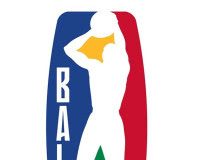Advertisement
| INFLATION REPORT – MARCH 2024 Headline CPI (YoY): The Headline CPI (YoY) for March stood at 33.2%. March 2024’s month-on-month headline inflation rate stands at 1.50% compared to the February 2024 headline inflation rate. On a month-on-month basis, the headline inflation rate for March 2024 decreased slightly to 3.02%, down 0.10% from February 2024’s rate of 3.12%. Core CPI (YoY): The Core inflation, which excludes the prices of volatile agricultural produce and energy stood at 25.90% in March 2024 on a year-on-year basis, compared to the 19.63% recorded in March 2023. Contributing Factors: Notably Bus Journeys within the city (under the Passenger Transport by Road class), Actual and Imputed Rentals for Housing, Consultation Fee of a medical doctor (under the Medical Services class), and pharmaceutical products, emerged as the primary drivers of this uptick. Food Inflation: Food inflation, in particular, a major driver of inflation saw a significant surge, rising to 40.01% year-on-year from 37.92%. Higher prices for bread and cereals, potatoes, yams, and other food items drove this increase. However, the month-on-month food inflation rate in March 2024 decreased to 3.62%, showing a 0.17% drop from February 2024’s rate of 3.79%. |
 Source: Comercio Partners | NBS Source: Comercio Partners | NBSInsight: Although Nigeria is struggling with galloping inflation, the light at the end of the tunnel would be the slight decrease on a month-on-month basis, although the decline is marginal, it is indicative that the CBN’s hawkish stance and the appreciation of the exchange rate is influencing the month-on-month inflation figures. |
| Why Nigeria inflation jumped despite CBN moves.The CBN recently increased MPR by 600 basis points across two rate hikes to 24.75%, particularly to combat inflation, however, inflation seems to be trending upward, and below explains some of the reasons behind these dynamics. Sticky Price Dynamics: Nigeria’s inflationary trajectory aligns with the concept of sticky prices, as proposed by John Maynard Keynes. Keynesian sticky price dynamics in Nigeria imply slow price adjustments despite changing demand. Sellers may resist price reductions due to inertia, high adjustment costs, market power, or inflation expectations. Additionally, if wages are sticky, labor costs can deter price reductions. These factors contribute to prices remaining unchanged, even when market conditions shift, thereby fuelling inflationary pressures. Delayed Monetary Policy Response: Lagging monetary policy adjustments have exacerbated the inflationary trend. The Central Bank of Nigeria implements interest rate and money supply modifications to manage inflation. Despite a recent 600-basis-point hike, elevating the policy rate to 24.75%, these measures have been tardy in mitigating the inflation surge. Socio-economic Influences: Socio-economic factors, notably insecurity hindering agricultural activities and inadequate storage facilities disrupting supply chains, have further aggravated inflation. This scenario, coupled with excess demand, has led to supply shortages, exerting upward pressure on prices. Additionally, cyclicality in the agricultural sector, compounded by current planting seasons, has impeded the availability of stored produce, exacerbating inflationary strains. |
| What has been done to curtail inflation? Stringent Benchmark Interest Rate: In a bid to counter soaring inflation, the Central Bank’s decision to elevate the benchmark interest rate to a historic 24.75% underscores its commitment to inflation containment. However. This comes at a cost as an aggressive hawkish is detouring growth. Recent CBN Initiatives: Various policies, including restrictions on loan repayment in foreign currency and interventions in the International Money Transfer Operators (IMTO) sector, have contributed to currency stabilization, with the naira appreciating to N1,070/$1(as of the time of writing). Nonetheless, the time lag associated with businesses adjusting prices may delay the full impact of these measures. Imported Food Dynamics: The apex bank’s effort to defend the naira has yielded good fruit, as the naira has appreciated from N2000/$1 to N1,070/$1, indicating that imported products are comparatively less expensive. Given that Nigeria is import-dependent, the appreciation of the exchange rate is expected to have a desired impact on inflation. |
 Source: Comercio Partners | CBN | NBS Source: Comercio Partners | CBN | NBSThe graphical depiction illustrates a concerning trend wherein the inflation rate surpasses the Central Bank of Nigeria’s (CBN) Monetary Policy Rate (MPR), as evidenced by the steeper trajectory of the inflation trend line compared to the MPR. This suggests that the conventional approach of hiking interest rates has not effectively curbed Nigeria’s inflationary pressures. |
| What can be done?Enhanced Consumer Protection: Efforts to safeguard consumer interests, particularly in retail environments lacking transparent pricing practices, are imperative. Regulatory interventions, such as those implemented by the Lagos State Consumer Protection Agency mandating price displays in supermarkets, serve as essential measures to prevent potential consumer exploitation and mitigate declining purchasing power. This should be implemented across states in the country so that the nation can have the desired effect of reduced inflation. Investment in Storage Infrastructure: Given the pivotal role of food inflation in driving overall inflationary trends, prioritizing the enhancement of storage facilities for agricultural products is crucial. Adequate storage infrastructure ensures the preservation of perishable goods, thereby bolstering supply resilience and mitigating price volatility resulting from supply chain disruptions. |
| Bottom Line Nigeria is facing one of its most severe economic crises in almost three decades, characterized by soaring food and fuel prices, currency devaluation, and foreign exchange volatility. The combination of these factors has put significant strain on consumers, leading to widespread anger and discontent. Although there have been major activities from the monetary policy, Nigeria’s inflation has structural challenges that would need the proactive intervention of fiscal policy to get the desired effect. |















































